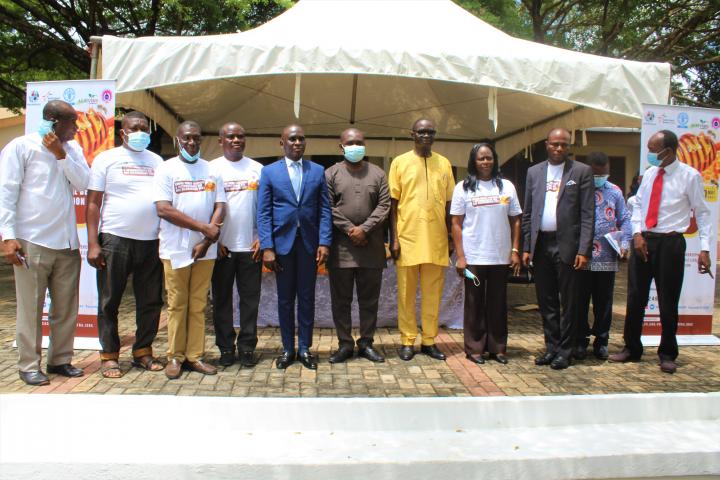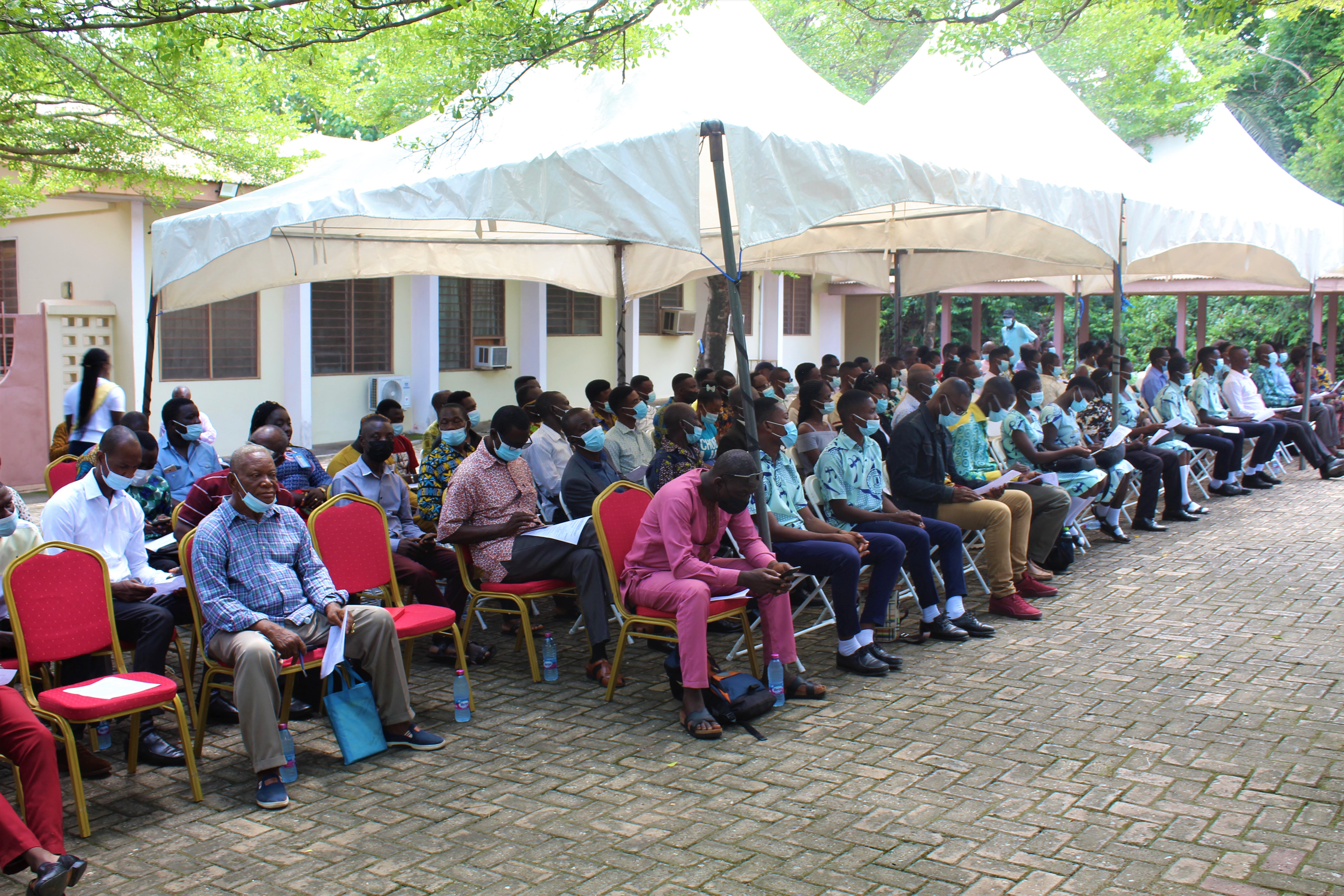Liquid gold – Danida alumni working to untap the potential of Ghana’s honey market

In conjunction with the UN International Bee Day 2021, a team of Danida alumni organized Ghana’s first Honey Festival and knowledge sharing forum in partnership with the Council for Scientific and Industrial Research, Forestry Research Institute of Ghana (CSIR-FORIG).
The festival was partly financed by a Danida Alumni Activity Grant and its theme “A Spotlight on Pollinators, Beekeeping, and Honey Safety for Sustainable Livelihoods and Biodiversity Conservation” could not be more timely. Despite the global honey market currently doing well, pollinators remain on the decline whilst adulteration practices are growing. A trend that can have grave economic and environmental consequences and is something that this event aims to tackle.
“The main purpose of the Ghana Honey Festival is to provide a single platform for producers, processors, consumers, and other relevant stakeholders to share knowledge and innovation for the growth of the industry, provide a national networking platform, and rally stakeholders to deliberate on bees and other pollinators and their critical role to society”, said Dr. Courage Besah-Adanu, Danida alum and Coordinator Of The Ghana Apiculture Platform, GHANAP. Dr. Besah- Adanu organized the Honey Festival on 20th May 2021 together with fellow Danida alumni Enoch Yeboah-Agyapong, Gifty Sunkwa Mills and Collins Prah Duodu
According to Dr. Beatrice Darko Obiri of CSIR-FORIG the potential of Ghana’s honey industry is currently untapped, including its value as an important source of income in rural areas. In fact, as Dr. Besah- Adanu highlights in this Joy News report, beekeeping requires very little investment and the climatic conditions are favorable across most of Ghana. Given this, it is especially concerning that Ghana relies on cheap honey imports from countries like China and the United Arab Emirates to satisfy national demand.
Alongside its economic potential, an equally important externality of the honey industry is its role in maintaining biodiversity and healthy ecosystems. The Festival’s keynote speaker, Ps. Prof. Peter Kwapong of the University of Cape Coast, and the Founder and the Director of the International Stingless Bee Centre, explained this point succinctly: “the main benefit of beekeeping is not actually the honey, it is what we call ‘pollination’. When you keep bees you are feeding the whole world. When you keep bees you are helping all flowering plants to survive or reproduce”. He continued to say that nearly 90% of the world’s wild flowering plant species depend entirely - or at least in part - on animal pollination, along with 75% of the world’s food crops and 35% of global agriculture land. In other words, beekeeping and pollination has numerous and wide-reaching social and economic benefits.
However, the current reality is that growing consumer demand for natural and healthy sweeteners, such as honey, has led to opportunistic players in the market reaping additional gains by applying cheaper and faster production methods. This is contributing to a growth in honey adulteration, something that not only undermines the integrity, safety and economic potential of the final product, but is also a practice that offers little benefits in the ways of pollination. As an individual consumer you would struggle to decipher between adulterated and pure honey, but to be eligible for import in most markets, honey products must meet pre-defined standards and undergo an assessment of their physicochemical qualities (such as sugar and moisture levels as well as electrical conductivity and diastase activity). This is something that adulterated honeys would struggle to live up to.
Another of the Festival’s speakers, Patrick Addo Newman, President of the Ghana Beekeepers Association, agrees with Dr. Courage Besah-Adanu that the Ghanaian environment is suitable for beekeeping in virtually all of the country’s ten regions, including urban areas like the Greater Accra Region. Yet Ghana is still far from realizing its honey-making potential. Although much progress has been made in past decades, Mr. Newman – echoed by Mr. Divine Odonkor, Chairman of the Volta Regional Association of Beekeepers - stated that a number of challenges, including a lack of national policies, standards and cross-institutional collaboration, are holding the Ghanaian honey sector back. Without clear policies and standards, damaging anomalies will remain throughout the value chain, which can ultimately have a negative impact on all actors in the market. It would require a concerted and national effort to optimize the situation and to reap the long-term benefits of the liquid gold that is honey.

Participants from across the country expressed great enthusiasm for the festival. Both producers present and those who joined via virtual platforms were positively encouraged by the industry now having a dedicated day for convening efforts and rallying a national focus on bees and honey production. “This much needed platform provides a channel to discuss, deliberate and strategize around a host of issues and challenges that are prevalent in the sector – not only related to the producers’ honey businesses, but also the issues affecting pollinators, especially honey bees that of course are key to the honey producers’ livelihoods,” says Dr. Besah-Adanu.
One of the major results of the festival was that proposals were put forward to embark on developing a real time database for beekeepers across the country. This would allow for scientific tracking of honey quality in support of product development and to inform marketing. Over time, such a database, and the transparency it would create, could help reduce or even eliminate adulteration practices within the value chain, whilst also highlighting a need for government policies to enhance quality assurance within the industry.
It is the hope that cross-sector knowledge sharing initiatives like the Ghana Honey Festival can mobilize stakeholders from around the country to carve out common goals for the benefit of all actors in the industry, and of course for Ghana to ultimately reap the untapped economic and environmental benefits of honey production.
You can read more about Ghana’s first honey festival in this article.